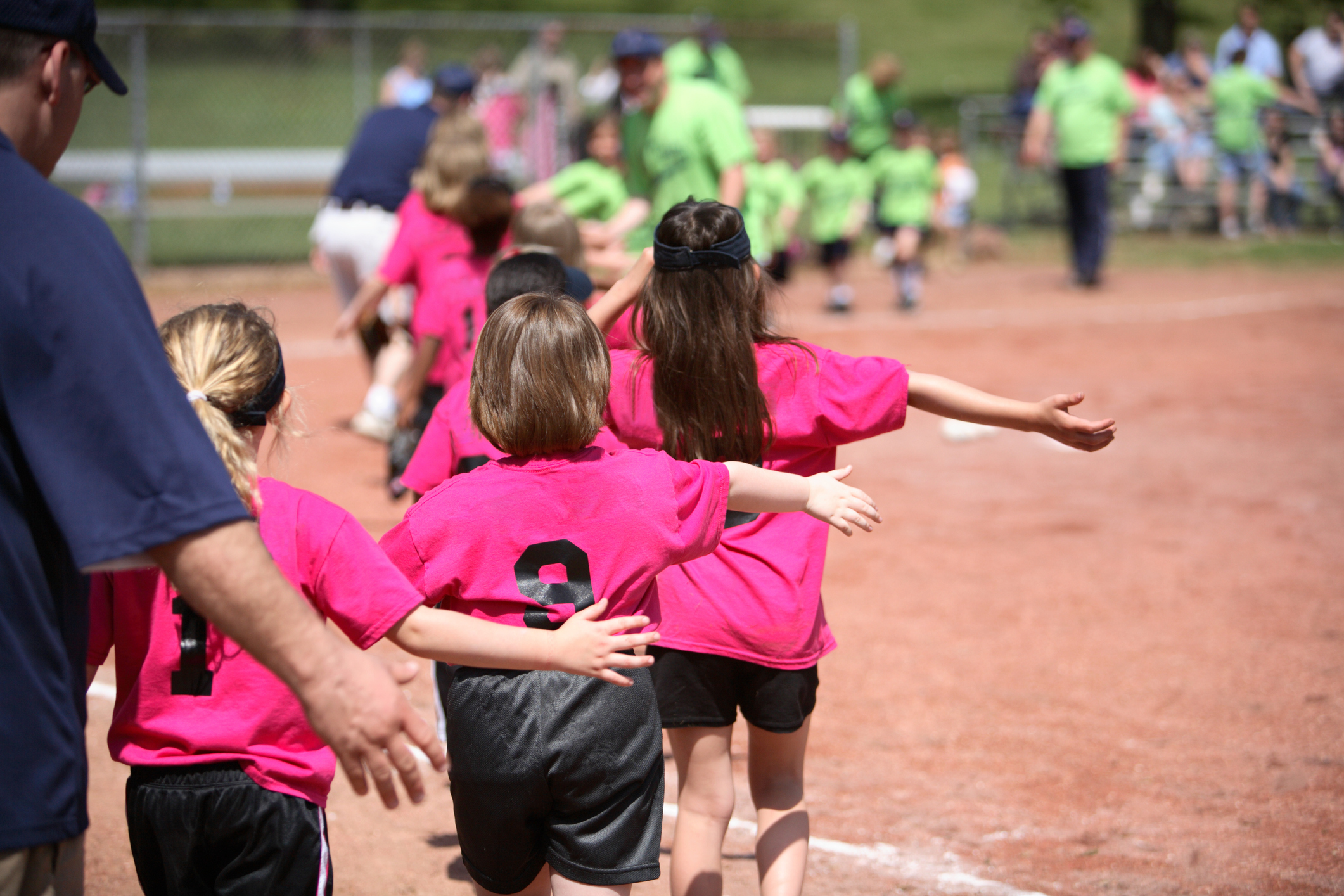When young athletes decide to try a new sport or prepare for a new season, it’s usually with thoughts of fun times and victory in mind. But part of what makes participation in sports a great idea for young people are the highs and the lows, including the lessons learned through losing a game, match or race. That’s why its as important to teach young athletes how to lose, as it is to prepare them to win.
Losing is bound to feel uncomfortable, but there are a few things to share with athletes that might make them process losing better.
First, re-framing loss from a perspective of failure to a perspective of growth is key.

Second, teaching young athletes to focus on their effort will continuously allow them to improve in games and in practice.
Lastly, exhibiting the ability to maintain self-control in the face of challenges is important to kids’ futures. Losing a competition is the perfect way to test self-control.
RE-FRAMING
“Things turn out best for the people who make the best of the way things turn out.” –John Wooden
Re-framing is a valuable mental tool that top athletes use frequently along with other mental exercises like visualization, meditation and self-talk. Re-framing gives athletes the ability to look at a situation from a different perspective. While athletes inexperienced in re-framing might look at a loss and only see losing, failure or disappointment, athletes who re-frame use their loss as a strategy for growth.
This learning experience can give them a broader perspective and even make them stronger. According to www.theemotionmachine.com, “psychologists are now identifying something known as ‘post traumatic growth’ where those who go through trauma end up more resilient and optimistic … being able to find the good in the bad is a key characteristic for any healthy mind.”
Most high level athletes are masters at re-framing, whether they do it consciously or not. Re-framing doesn’t always have to be about learning a specific task-related lesson, but can be as simple as turning around an attitude of fear and worry to an attitude of enjoying the effort.
EFFORT FOCUSED
Closely connected to re-framing, athletes focused on their effort can not only leave feeling satisfied in giving their all, even after a loss, but will keep improving over the long haul. Young athletes need to know that producing a good effort is extremely important and as their coach, you won’t be upset with them after a loss if they’ve given all their effort. Effort leads to improvement after all.
So how do you keep athletes focused on effort? According to Vanderbilt University’s Center for Teaching, there are two types of motivation: intrinsic and extrinsic.
Those motivated extrinsically are driven by external factors like parental expectations or prizes. Those motivated intrinsically are not overly concerned by awards or ego boosts, but have a fascination with the subject or sport and get a sense of accomplishment in mastering it. There’s advantages and disadvantages to coaching athletes that respond to either kind of motivator, but here’s a few tips to keep all athletes motivated on giving their best effort:
- Be a role model – put effort into making practice organized, productive and fun.
- Get to know your athletes – find out what motivates them, display a strong interest in them, have faith in their abilities.
- Use examples freely – athletes want to be shown why certain techniques work and why others won’t.
- Place appropriate emphasis on competition – great effort should be given every day in practice, not just during games.
- Be free with praise and constructive criticism – offer nonjudgmental feedback, stress opportunities to improve, corrective comments should pertain to particular performances.
SELF-CONTROL
It’s silly to think that just telling young kids that learning self-control is really important to the rest of their lives will give them any of it. So many factors go into how kids learn to control themselves. Dr. Alan Goldberg talks about those factors at www.competitiveedge.com. The athlete’s level of maturity, ego, coaches’ and parents’ behavioral limits, capacity for sportsmanship, level of self-esteem and role models all have an impact on how they control themselves when the going gets tough.
Even though teaching self-control is never entirely in the coach’s hands, there are two fundamental things coaches should do to guide athletes in the right direction.
First, get to know each individual. According to Dr. Alan, “Being empathically tuned into where your athletes are coming from is probably one of your more valuable and powerful tools as a coach. When you take the time to figure out what your athletes are going through and where they’re coming from, you will instantly become more effective with them.”
Knowing what to say to an athlete can only come from a personal relationship with that individual. When a coach knows what to say, when and how after a loss, they’re exhibiting the kind of behavior they expect, which leads to the second fundamental to teaching self-control, be a good role model.
Coaches can exhibit the same kind of behavior after a loss that they expect from their players. Remaining approachable, communicative and open to constructive feedback is paramount. Exhibiting this kind of behavior is especially important in this day and age when there are plenty of bad examples out there. Boasting, uncontrolled anger taken out on teammates, officials or the media has run amuck in many professional sports. While coaches are exhibiting good behavior it is fine to remind kids that bad behavior that is sometimes displayed by pros isn’t part of the sport, isn’t cool and is downright foolish.

Taking one of the tips from above, it’s good to use plenty of examples. Telling athletes about personal losses and analyzing the behavior of yourself or opponents in the past can be very effective. Taking a look at well-known losses that have changed the course of an athlete’s career for the better is also a good way to talk about how to use self-control around losing.
THERE’S ALWAYS A WINNER … AND A LOSER
One thing is for sure in any competition. There is always a winner and always a loser. Kids who participate in sports will eventually experience both ends of the spectrum. Remember why kids participate in competition and what they’ll remember years from now. They’ll most likely remember the friends they made and some of the valuable lessons learned – not one particular loss. Equipping young athletes with the tools to re-frame loss, focus on giving their best effort and maintain self-control in the face of challenges will be lessons they take into the future and will be well worth the sting of losing.


